Description
CHAPTER ONE
1.0 INTRODUCTION
1.1 BACKGROUND OF THE STUDY
Valuation being the pivot of all the activities of the estate surveyors and value’s, it is seen as an act of assessing the worth of properties. It is also the act of valuing or estimating value. Valuation is the provision of written opinion as to capital price or value, or rental value, any given basis in respect of an interest in property, with or without associated information assumption or qualifications.
Valuation was regarded as act or science of estimating property values. But these days (valuation is perceived as more of science than art) MILLINGTON, 1988. Valuation has been likened to a science not because of any precision that may or may not exist, but because of the question on ‘how much’? poses a problem that required a solution. The scientific approach to problem solving is not to follow a systematic process. Enumerate above are purely scientific process.
Apart from this, the appraisals of other forms of investment have gone beyond institution by subjecting them to rigorous analytical technique using the computer (OLAYONWA, 2006).The aim of this study is to identify ways client influence values in valuation reports.
The term client in valuation parlance refers to individuals or corporate bodies who use the rental, market or investment value estimates/advice of a valuer/appraiser for a fee. Invariably, non-clients are actually those who have no need for such professional advice as given by the valuer. Normally, it is expected that such advice from the Estate Surveyor and valuer is derived from an independent interpretation of property demand/supply and price relationship. However, there are indications that clients sometimes influence the outcome of the valuation process, a situation that perhaps professionals saddled with the responsibility of proffering professional judgment are faced with. The influence of clients’ on valuers manifests itself in the latter adjusting their opinion of values or reported figures to suit client desires for high or low estimates. To this end, there are perhaps subtle allegations from bank executives and other financial institutions that issue mortgage loans, on reports of clients’ deliberately inflating mortgage valuation upwards for greater facilities.
Allegations on clients’ influence are indeed worldwide. For instance, Kinnard, Lenk and Worzala (1997), discovered that some appraisers (valuers) in the US are willing to change valuation conclusions under client pressure. Baum et. al. (2000) and Crosby et al (2004) also confirmed the existence of client evidence on valuations in the UK. Similarly, in New Zealand and Singapore, surveys of registered appraisals reveal considerable levels of clients’ influence (Levy and Schuck, 1999 and Shi-Ming Yu, 2002 respectively). The studies demonstrate a variety of dimensions that such influence/intimidation takes. At times, higher fees are offered, or offers are made of continuation of future engagement.
At other times, professional fees are denied – a phenomenon described by Kohli (1989) as the reward and coercive power of clients. Moreover, clients at times offer prejudiced valuation information to their valuers particularly in markets unfamiliar to the valuers (what Levy and Schuck, 1998 described as information power). In Nigeria, it is even suggested that some clients insist that valuers adopt the cost approach to value to secure higher estimates, even where the properties to be valued are investment properties and the market evidence is available (Ogunba, 1997).
In Nigeria, though such research is still embryonic, the story is not different as earlier research has ascertained the existence of this phenomenon (Amidu and Aluko, 2007; Iroham, 2007; Ogunba, 1997). Even in this country just like any other African Commonwealth countries where the valuation profession is newly emerging and the role of the Estate Surveyor and valuer is yet to be fully appreciated, this scourge does exist. Perhaps, the reason adduced for such influence could be direct linkage between the professionals and those that release jobs to them. In cases where a third party (non-client) comes in play, the question then is would the professionals still give room for such influence particularly when fully assured that their interest would in no way be jeopardized? It is in light of the aforementioned that this research intends to discover the influence a non-client would have so as to seek for ways to ameliorate this glitch. Perhaps however, the need for this study is more compelling in a country like Nigeria because it is in such developing societies where investigation and elimination of all forms of client influence and other potentially damaging circumstances is apt so as to prevent the dent on integrity of the young profession trying to justify her relevance to largely unimpressed clientele and competing professionals.
The study focuses on mortgage valuation being the most frequent and influenced by Clients’ (Iroham, 2007). One probable outcome client influence eventually leads to is the distortion of values which is usually upwards, as clients will always want to inflate the values of their security so as to attract more facility, thereby not giving the true depiction of values that represents outcomes in the property market. This explains why bank managers and disbursers of loans in Nigeria would prefer valuation reports to be more explicit particularly in terms of valuation calculations carried out (Oluwunmi, et. al., 2011).
1.2 STATEMENT OF THE PROBLEM
Property valuation is an industry constantly striving for consistency, and for levels of low variance and high accuracy. Many variables affecting variance and accuracy exist and have been studied internationally. Valuation accuracy is needed as a constant throughout the global valuation industry, but is affected by the way that valuers are influenced. The relationship between the property valuer and the client as a way of influencing values has caused significant global interest, and these influences on valuers by clients have been researched. Ethical considerations towards valuation practice and the accuracy in valuation outcomes resulting from these ethical considerations have been studied internationally.
This study will address the existence of client influence on valuer behaviour in Nigeria as well as the nature of this influence. The valuation industry in Nigeria, as in the rest of the world, is built on ethical behaviour and credibility. When these values are breached, the consequences can be detrimental to the industry, negatively influencing the industry and the intention to achieve accuracy among valuers. Research into client influence on valuer behaviour has not yet been conducted in Nigeria and has to be undertaken. The nature, prevalence and consequences of such influences are yet to be established. Through a quantitative methodology of survey questionnaires and follow-up unstructured interviews, this study will address client influence on valuer behaviour in Nigeria, what the variables of these influences are and the prevalence of such influences.
1.3 OBJECTIVES OF THE STUDY
- To establish the existence of influence that clients in Nigeria have on property valuation professionals, the prevalence of this influence and the consequences thereof.
- To establish the presence and prevalence of influence that clients have on real estate valuers on a global level by reviewing the literature.
- To establish client influence on valuer behaviour in Nigeria:
- The Nature;
- Prevalence;
III. Consequences thereof.
- To ascertain if truly clients have significant influence on property valuation
1.4 RESEARCH QUESTIONS
The study will seek to answer the following questions:
- Does client influence on valuer behaviour exist in Nigeria?
- What is the nature of the clients’ influences on valuer behaviour in Nigeria?
- Is there significant prevalence of client influence on valuers in Nigeria?
- What are the consequences of value adjustments to valuers’ results after client interaction?
- Does client influence play a significant role on property valuation?
1.5 SIGNIFICANCE OF THE STUDY
This study is significant because clients and property valuers in higher institutions are required to conduct research for notes, further reading, assignments and projects which serials can provide current information for. The findings of this study will assist policymakers, stakeholders and institution management bodies in Nigeria to ascertain the level of impact their policies and directives are making on property valuation.
1.6 LIMITATION OF THE STUDY
- Network interconnectivity to enhance elaborate research •
- High level of illiteracy
- Organization operational huddles.
- Time and cost constraints due to cause of scarcity in gasoline to go about the research.

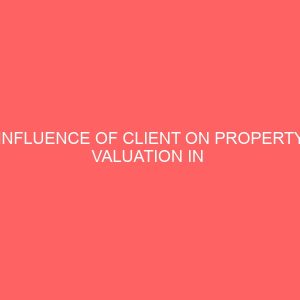
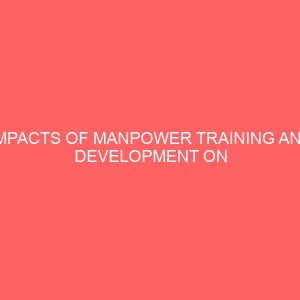

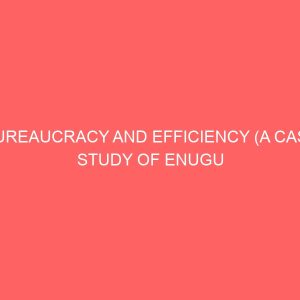
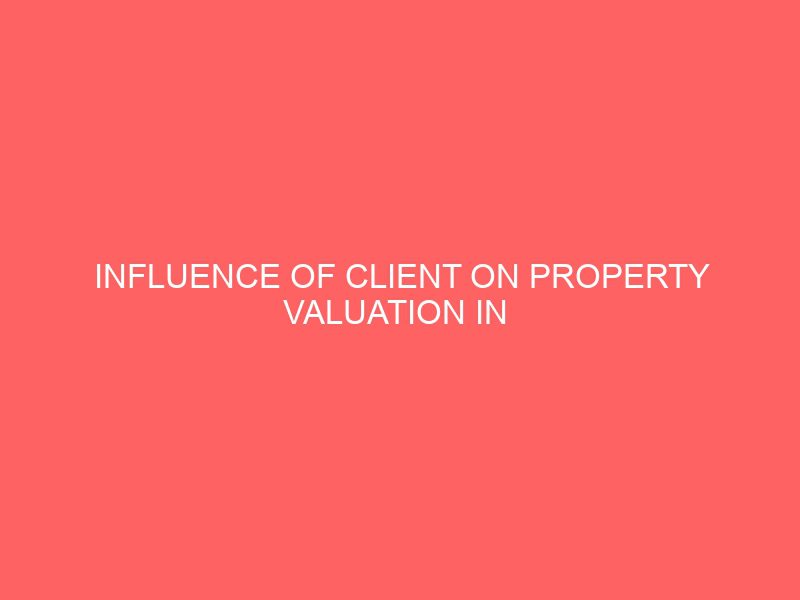
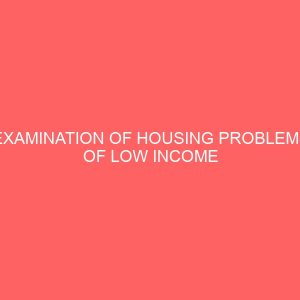

Reviews
There are no reviews yet.